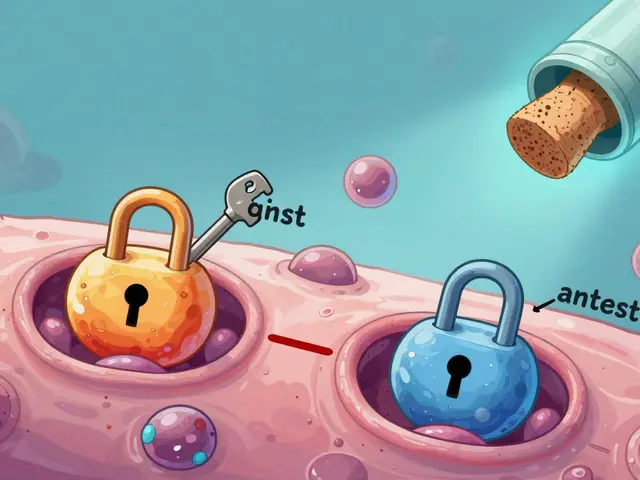Genetic Factors: How Your Genes Affect Health and Meds
Your genes quietly shape a lot—how likely you are to get certain diseases, how your body handles drugs, and sometimes how fast you recover. Knowing which genetic factors matter can change what tests you get, what treatments your doctor picks, and the lifestyle steps that make the most difference.
Think of genetics as one part of the picture. Family history can flag risks like early heart disease, some cancers, or inherited conditions such as cystic fibrosis. But genes don’t act alone. Your age, diet, exercise, and exposures also matter. Still, when a condition runs in a family, that’s the cue to look closer.
When to consider genetic testing
Wondering when testing makes sense? Test if you have a strong family history of early-onset cancer, unexplained heart problems, repeated pregnancy losses, or a clear pattern of a rare disease. Genetic screening is also useful before starting certain medications—if a test can predict a serious side effect or a poor response. Tests vary: some look at a single gene, others scan many. Ask a genetic counselor or your doctor what the test will actually tell you and how actionable the results are.
How genetics change drug choices
Pharmacogenetics studies how genes influence drug response. This isn’t sci-fi—doctors already use it for drugs like warfarin, clopidogrel, and some cancer therapies. For example, people with certain CYP2D6 variants can’t convert codeine into its active form, making it ineffective. Other gene changes can raise the risk of severe side effects or change the dose you need. If a genetic test shows a likely problem, your doctor can pick a different drug or adjust the dose to keep you safer.
Practical steps you can take right now: write down illnesses and ages at diagnosis for close relatives, bring that list to appointments, and ask if genetic testing or a referral to a genetic counselor makes sense. If you start a new drug and have bad reactions or the medicine doesn’t help, mention family history and ask about pharmacogenetic testing.
Privacy and cost are real concerns. Some tests are covered by insurance when there’s a clear medical reason; others aren’t. Learn how results are stored and who can see them. Genetic counselors help explain risks, benefits, and how tests affect family members.
Not every test gives a clear answer. You might get a finding that’s uncertain or that raises more questions. That’s normal. Use those moments to discuss concrete next steps—surveillance, preventive options, or targeted treatments—rather than chasing uncertainty.
Genetic factors can change the way you prevent, diagnose, and treat disease. They’re a tool, not a destiny. If your family story raises red flags, talk with a clinician about testing, get a clear plan, and choose actions that actually help you stay healthy.
Start by asking your primary care doctor for a referral, or search for a genetic counselor in your area. If cost is a worry, ask about insurance coverage or staged testing that targets likely genes.

Study Reveals Genetic Influence on Neurontin's Effectiveness in Treating Chronic Pain in Women
A recent study has shown that a specific gene, Neuregulin 3, can affect the effectiveness of Neurontin, a medication used for chronic pain, in women. This finding is particularly significant for personalized medicine, as it suggests treatments could be better tailored to individual genetic profiles.
read more




